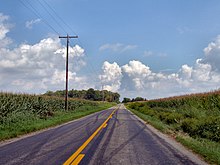Highway hypnosis

Highway hypnosis, also known as white line fever, is a mental state in which a person can drive a truck or other automobile great distances, responding to external events in the expected and correct manner with no recollection of having consciously done so.[1] In this state, the driver's conscious mind is apparently fully focused elsewhere, with seemingly direct processing of the masses of information needed to drive safely. Highway hypnosis is a manifestation of the common process of automaticity, where the conscious and unconscious minds are able to concentrate on different things.
The concept of "highway hypnosis" was first described in a 1921 article that mentioned the phenomenon of "road hypnotism": driving in a trance-like state while gazing at a fixed point. A 1929 study, Sleeping with the Eyes Open by Miles, also dealt with the subject, suggesting that it was possible for the motorists to fall asleep with eyes open.[2] The idea that the unaccountable automobile accidents could be explained by this phenomenon became popular in the 1950s.[3] The term "highway hypnosis" was coined by G. W. Williams in 1963.[2][4] Building on the theories of Ernest Hilgard (1986, 1992) that hypnosis is an altered state of awareness, some theorists hold that the consciousness can develop hypnotic dissociation. In the example of highway hypnosis, one stream of consciousness is driving the car while the other stream of consciousness is dealing with other matters. Amnesia can even develop for the dissociated consciousness that drove the automobile.
See also
References
- ^ Weiten, Wayne. Psychology Themes and Variations (6th ed.). Belmont, California: Wadsworth/Thomas Learning. p. 200. ISBN 0-534-59769-6.
- ^ a b Underwood, Geoffrey D. M. (2005). Traffic and transport psychology: theory and application: proceedings of the ICTTP 2004. Elsevier. pp. 455–456. ISBN 978-0-08-044379-9.
- ^ Weitzenhoffer, André Muller (2000). The practice of hypnotism. John Wiley and Sons. pp. 413–414. ISBN 978-0-471-29790-1.
- ^ Williams, G. W. (1963). "Highway Hypnosis". International Journal of Clinical and Experimental Hypnosis (103): 143–151.
